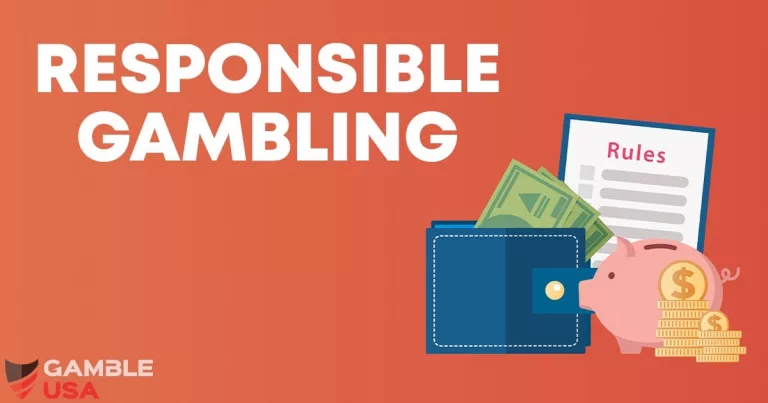
Responsible Gambling Guide
Safer Gambling Tips
Gambling, unlike passive entertainment such as streaming movies, carries inherent risks. Over time, the odds are that losses will outnumber wins. To ensure a safer gambling experience, consider the following:
- Avoid gambling when emotionally distressed.
- Limit alcohol and cannabis consumption during gambling.
- Understand the games before placing bets.
- Set clear financial and time boundaries.
- Regularly take breaks to refresh and reassess.
- Use only disposable income for gambling.
- Accept losses and avoid trying to recover them.
- Treat gambling as entertainment, not a source of income.
- Leave credit and debit cards at home to stick to your budget.
- Balance gambling with other leisure activities.
- Stop playing once it’s no longer enjoyable.
- Avoid relying on “good luck” strategies.
- Choose websites with pre-commitment tools and RG Check accreditation.
- Consider using gambling site blocker apps.
- Be wary of hidden fees when using credit cards for gambling.
- Use software like Bet Blocker and GamBan to set limits or block sites.
Sports Betting: A Deep Dive
Sports betting offers fans a unique way to engage with their favorite teams. However, the excitement can lead to impulsive decisions.
The Evolution of Sports Betting
- Online sports betting has surged in popularity across countries.
- Legal changes, such as those in Canada and the U.S., are reshaping the sports betting landscape.
- Technological advancements have diversified platforms, introducing options like live in-play betting.
Risks and Precautions
- The constant availability of online sports betting can lead to excessive gambling.
- The cultural significance of sports can amplify gambling risks.
- Young males, particularly those aged 18-34, are at a higher risk of problematic sports betting.
- Live-action sports betting is a significant predictor of at-risk gambling.
- There’s a misconception that skills or knowledge can majorly influence gambling outcomes, leading to an illusion of control.
The Impact of Substance Use on Gambling
Substance use, especially during sports events, can significantly influence gambling behaviors and outcomes.
Alcohol, Drugs, and Decision Making:
- Sports events often involve alcohol or drug consumption. It’s crucial to remember that gambling under the influence can lead to regrettable decisions.
- Intoxicated gamblers are more likely to overspend, place larger bets, and face significant losses.
- Research indicates that sports bettors have a problem gambling rate that’s twice as high as general gamblers.
Older Adults: A Vulnerable Group
The aging process can influence gambling behaviors and susceptibility to related problems.
- Cognitive challenges, such as memory impairment and cognitive decline, can increase older adults’ vulnerability to gambling issues.
- Older adults with cognitive impairments are more likely to become problem gamblers due to decreased self-regulation.
- While many older adults view gambling as a social activity, a significant percentage of problem gamblers in this age group gamble alone, leading to social isolation.
Cultural Background and Its Influence on Gambling
Different cultural backgrounds can shape perceptions and behaviors related to gambling.
- Some communities view gambling as a regular pastime, potentially masking problem behaviors.
- Limited English proficiency can delay help-seeking among certain groups.
- Indigenous populations have been observed to have higher rates of problem gambling compared to non-Indigenous groups.
- Discrimination based on Indigenous race can be a risk factor for problem gambling.
- Immigrants, especially students, might face unique challenges related to gambling.
Socioeconomic Status and Gambling
Economic backgrounds can significantly influence gambling behaviors and associated risks.
- Those from lower socioeconomic backgrounds often spend a higher percentage of their income on gambling.
- Living in impoverished areas can increase the risk of developing gambling problems.
- People in lower income brackets are more likely to face gambling harm if they spend more than 1% of their income on it.
- The rate of problem gambling among homeless populations is significantly higher than in the general population.
Young Adults and Gambling
The brain’s ongoing development during young adulthood can influence gambling behaviors.
- Young adults, especially those between 18-24, are at a higher risk of developing gambling problems.
- Online gambling is a strong predictor of gambling issues in this age group.
- The combination of substance use and gambling can be particularly harmful for young adults.
Intoxicated Gambling: A Risky Bet
The combination of intoxication and gambling can have severe repercussions, especially for certain age groups.
The Dangers of Intoxicated Gambling:
- Gambling under the influence can lead to impaired decision-making and heightened risk-taking.
- Such behavior can result in prolonged playtimes, increased spending, larger and riskier bets, and significant financial losses.
- Studies have shown that individuals with gambling problems are more likely to gamble while intoxicated.
Young Adults: A Particularly Vulnerable Group
- Young adults, especially those aged 18-24, are at the highest risk of experiencing harms from gambling.
- This age group exhibits higher rates of alcohol use, binge drinking, and alcohol use disorders compared to older age groups.
- Rates of cannabis use are also high among young adults.
- Young adults are more likely than other age groups to gamble while intoxicated.
Recognizing the Early Warning Signs
Being aware of the early signs of a potential gambling problem can help in timely intervention and prevention.
Indicators of Problematic Gambling:
- Skipping essential commitments like classes or work to gamble.
- Reducing time spent with friends or avoiding family events in favor of gambling.
- Being dishonest about the extent of time and money spent on gambling.
- Neglecting personal health, nutrition, and sleep.
- Resorting to borrowing or stealing money for gambling.
- An increase in substance use.
- Constantly thinking about gambling.
Strategies for Safe Gambling
Understanding and implementing low-risk strategies can help ensure a safe and enjoyable gambling experience.
Tips for Responsible Gambling:
- Set clear financial limits and stick to them.
- Allocate specific time for gambling and adhere to it.
- Avoid chasing losses.
- Treat gambling as a form of entertainment, not a source of income.
- Stay informed about the games and their rules.
- Take regular breaks to assess your decisions and state of mind.
- Seek help if you recognize signs of problematic gambling in yourself or someone you know.
The Socio-Cultural Landscape of Gambling
Different societal and cultural factors can influence an individual’s approach to gambling, making some groups more vulnerable than others.
Cultural Background and Gambling:
- In certain communities, gambling is seen as a regular pastime, making it challenging to identify problematic behaviors.
- Language barriers, especially low English proficiency, can hinder some ethno-cultural groups from seeking timely help.
- Indigenous populations often face higher rates of problem gambling compared to non-Indigenous groups. Discrimination based on Indigenous race can further exacerbate this risk.
- Immigrant populations, especially students studying abroad, may face unique challenges related to gambling. The stress of adapting to a new environment, combined with the allure of gambling, can be a potent mix.
Socioeconomic Factors:
- Economic backgrounds play a pivotal role in gambling behaviors. Those from lower socioeconomic backgrounds might spend a disproportionate amount of their income on gambling.
- Living in economically disadvantaged areas can elevate the risk of developing gambling problems.
- The homeless population faces a significantly higher risk of problem gambling compared to the general populace.
The Youth and Gambling
The transitional phase of young adulthood can make this age group particularly susceptible to the allure and potential pitfalls of gambling.
The Vulnerability of the Youth:
- The brain continues to develop during young adulthood, particularly the areas responsible for decision-making. This ongoing development can lead to increased risk-taking.
- Online gambling emerges as a strong predictor of gambling issues among young adults.
- The combination of substance use, prevalent among this age group, and gambling can lead to severe consequences.
Facts about Young Adults and Gambling:
- Gambling participation tends to increase during adolescence, peaking in young adulthood. This period also witnesses a heightened risk for gambling problems.
- Intoxicated gambling is especially risky for young adults. The combination of substance use and gambling can lead to impaired decision-making, resulting in significant losses.
Conclusion
Gambling, while a popular form of entertainment for many, carries inherent risks that can have profound impacts on individuals and communities. From the excitement of sports betting to the allure of online platforms, the world of gambling offers diverse experiences. However, it’s essential to approach it with caution and awareness.
Certain groups, such as young adults, older individuals, and those from specific cultural or socioeconomic backgrounds, are particularly vulnerable to the pitfalls of gambling. The influence of substances like alcohol and drugs can further amplify these risks, leading to regrettable decisions and significant financial losses.
Recognizing the early signs of problematic gambling and understanding the factors that can increase one’s vulnerability are crucial. Equally important is the promotion of safer gambling practices and the provision of resources and support for those in need.
In a rapidly evolving landscape where technology and societal norms continue to reshape the world of gambling, education, awareness, and timely intervention remain our best tools to ensure that gambling remains a source of entertainment, not distress.
